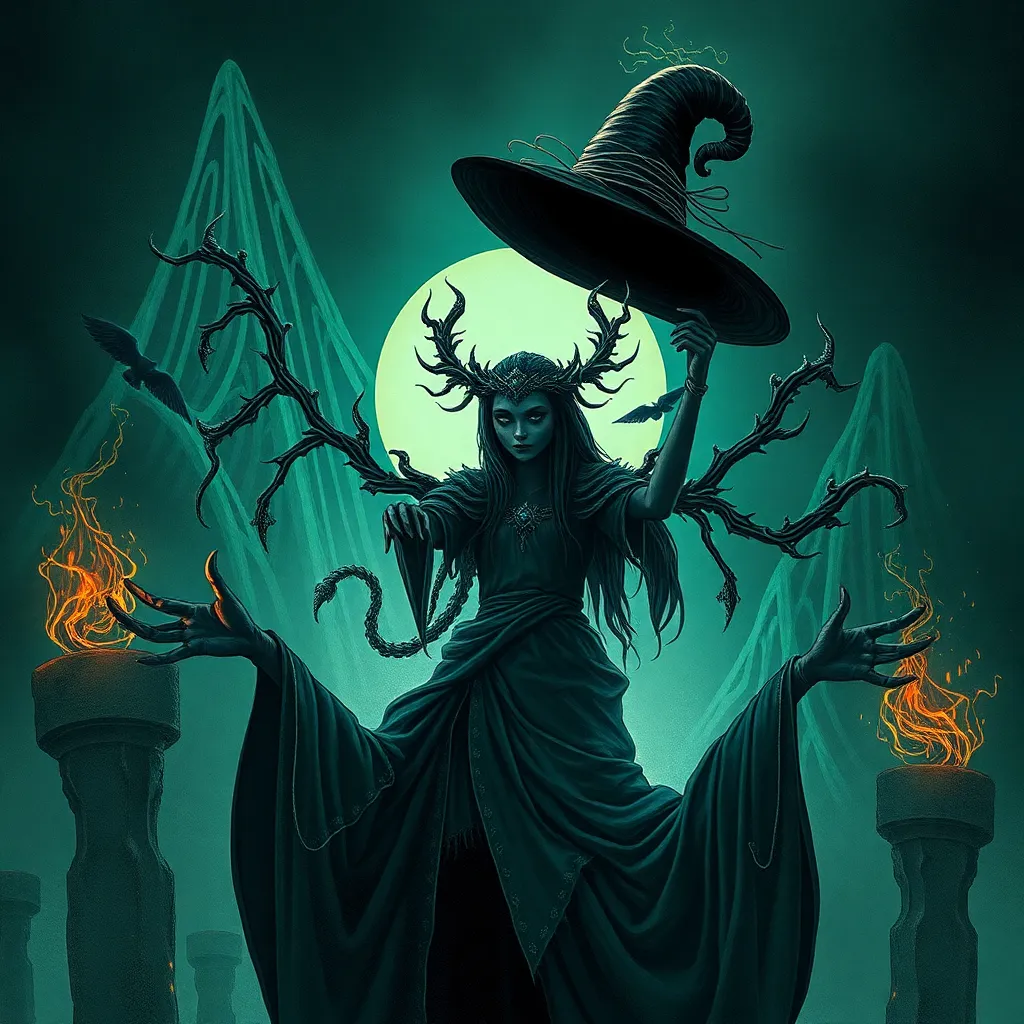The Witch’s Familiar: Empusa’s Influence on European Folklore and Belief Systems
I. Introduction
In folklore, a witch’s familiar is often depicted as a supernatural entity or spirit that aids a witch in her magical practices. These familiars can take various forms, including animals or humans, and are believed to provide guidance, power, and protection. Among these figures, Empusa stands out as a significant entity in mythology, particularly in ancient Greek narratives.
This article aims to explore the historical and cultural significance of Empusa, examining her origins, variations in folklore, and the implications of her character within the context of witchcraft and gender dynamics. Furthermore, we will analyze the psychological and social impacts of Empusa’s influence on European belief systems.
II. Historical Background of Empusa
Empusa originates from ancient Greek mythology, where she is often described as a seductive demon who preys on young men. She is frequently associated with the goddess Hecate, known for her connections to magic, witchcraft, and the night.
Within the pantheon of spirits and demons, Empusa embodies both the allure and danger of feminine power. Her character has evolved over the centuries, transitioning from a figure of terror in ancient texts to a more nuanced representation in various cultural contexts.
III. Empusa in European Folklore
Empusa’s influence extends beyond Greek mythology into broader European folklore, where her character has adapted and transformed. Variations of Empusa can be found in different cultures, often taking on similar attributes but varying in name and specific characteristics.
- In Slavic folklore: Empusa is akin to the “vodyanoy,” a water spirit that lures victims to their doom.
- In German folklore: She can be compared to the “Alp,” a creature that haunts dreams and feeds off the life force of sleepers.
Comparing Empusa to other familiar spirits in European folklore reveals a pattern of feminine entities that are both revered and feared. These figures often represent the duality of women in society, embodying both nurturing and destructive qualities.
IV. The Role of Familiars in Witchcraft
Familiars in witchcraft are defined as supernatural beings that assist witches in their magical endeavors. They are characterized by their loyalty, intelligence, and often possess unique powers that complement the witch’s abilities.
Empusa’s significance as a witch’s familiar lies in her ability to embody the darker aspects of magic and femininity. Historical accounts illustrate how witches were often depicted alongside their familiars, highlighting their dependence on these entities for power and protection.
- Notable historical accounts:
- The trials of witches in medieval Europe frequently included testimonies about their familiars.
- In some cases, these familiars were accused of being demons sent to assist the witches in their nefarious activities.
V. Empusa and Gender Dynamics in Folklore
Empusa is heavily associated with femininity and sexuality, often depicted as a beautiful woman who uses her charm to ensnare her victims. This portrayal has significant implications for the perception of female witches in society.
The impact of Empusa on societal views of female witches can be seen through various lenses:
- Reinforcement of stereotypes: Empusa’s character contributes to the stereotype of the seductive witch, a common trope throughout history.
- Gender dynamics: The fear of powerful women often leads to societal control mechanisms, manifesting in witch hunts and persecution.
VI. Cultural Representations of Empusa
Empusa has been represented in various forms of literature and the arts, from ancient texts to contemporary novels and films. These representations often reflect society’s evolving attitudes towards witchcraft and femininity.
Modern interpretations of Empusa in popular culture include:
- Films that portray female characters with witch-like qualities drawing inspiration from Empusa.
- Literature that explores themes of empowerment and the reclaiming of feminine power through witchcraft.
The impact of these cultural representations shapes contemporary beliefs about witchcraft, often romanticizing or vilifying the figure of the witch, depending on the narrative.
VII. The Psychological and Social Implications of Empusa’s Influence
The fear and fascination surrounding witchcraft and its associated entities like Empusa reveal deep-rooted psychological and social implications. Communities often project their fears onto these figures, using them as cautionary tales.
Empusa’s role in societal control can be observed in how her character serves as a moral lesson, warning against the dangers of unchecked feminine power. The psychological impact of belief in familiars influences community dynamics, creating an atmosphere of suspicion and fear.
VIII. Conclusion
In summary, Empusa’s influence on folklore and belief systems is profound, reflecting the intersection of mythology, witchcraft, and gender dynamics. Her character has evolved from a terrifying demon in ancient mythology to a multifaceted figure in contemporary culture.
As society continues to grapple with issues of power, femininity, and morality, the relevance of Empusa remains significant. The enduring legacy of witch’s familiars, exemplified by Empusa, continues to inspire discussions around gender, power, and societal norms in modern society.



